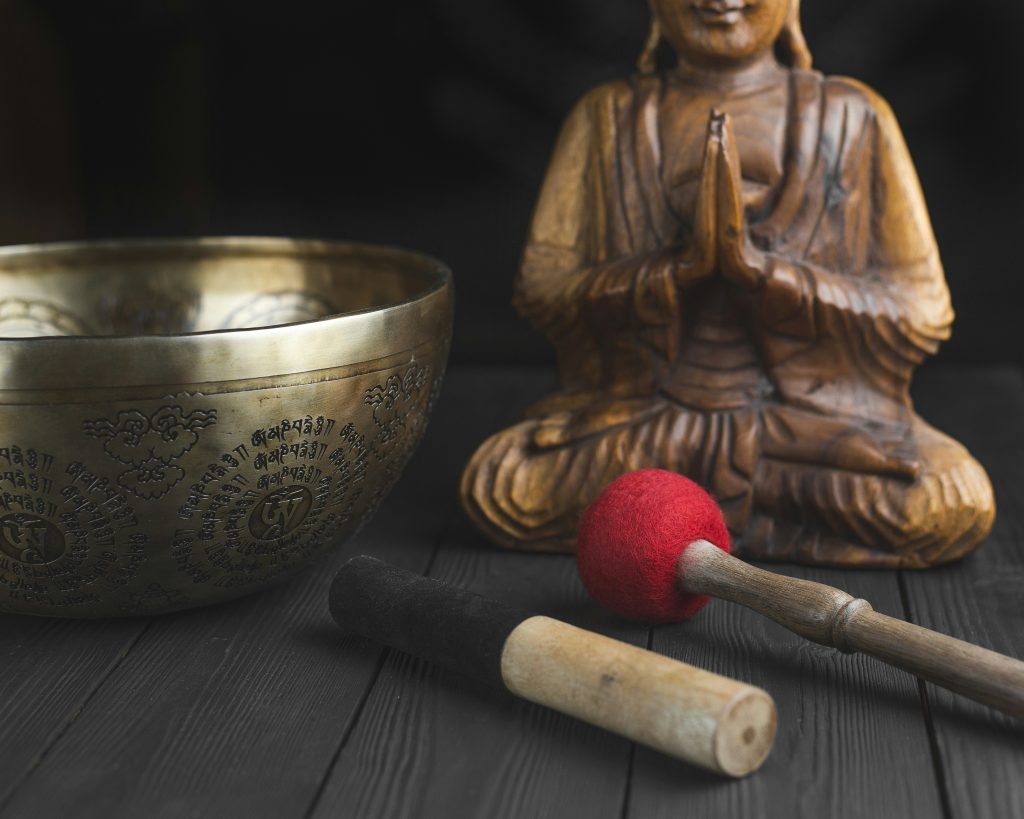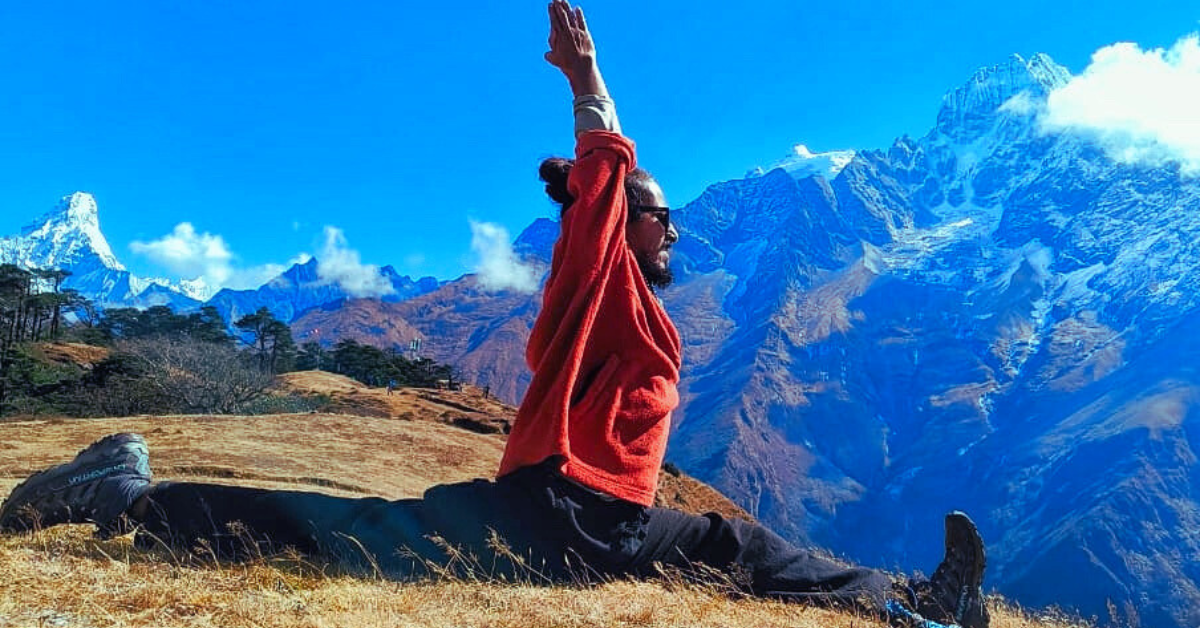Mental health has become a paramount concern for individuals seeking balance and well-being in the digital era. As the demand for holistic approaches to mental health continues to rise, yoga and meditation have emerged as powerful tools for cultivating inner peace and emotional resilience. This comprehensive guide delves into the profound impact of yoga and meditation on psychological self, drawing insights from Manasukh’s transformative retreats.
Understanding the Connection Between Yoga, Meditation, and Mental Health

The Science Behind Yoga’s Impact on Mental Health
Consistently, researches have shown that yoga can significantly improve various aspects of mental balance. By combining physical postures, breathing exercises, and mindfulness techniques, yoga has been found to reduce stress, anxiety, and depression. Furthermore, regular yoga practice has been associated with increased production of gamma-aminobutyric acid (GABA), a neurotransmitter that plays a crucial role in regulating mood and promoting relaxation.
Meditation as a Powerful Tool for Mental Well-being
Meditation, a cornerstone of many yoga practices, has been extensively researched for its positive effects on mental health. Through regular meditation, individuals can cultivate mindfulness, which has been shown to reduce symptoms of anxiety and depression. Additionally, meditation has been linked to changes in brain structure, particularly in areas associated with emotional regulation and self-awareness.
The Synergistic Effects of Combining Yoga and Meditation
When yoga and meditation are practiced together, their benefits for mental self are often amplified. This powerful combination can lead to improved emotional regulation, enhanced stress management skills, and a greater sense of overall well-being. Many practitioners report experiencing a profound sense of inner peace and clarity after engaging in both yoga and meditation regularly.
How Yoga and Meditation Address Common Mental Health Challenges
From managing stress to coping with anxiety and depression, yoga and meditation offer a range of techniques. These practices provide individuals with practical tools for navigating life’s challenges, promoting resilience, and fostering a positive mindset.
The Unique Benefits of a Mental Health-Focused Yoga and Meditation Retreat

Creating a Supportive Environment for Healing and Growth
A retreat setting provides a unique opportunity for individuals to fully immerse themselves in yoga and meditation practices. By removing the distractions of daily life, participants can focus entirely on their mental health journey. This supportive environment fosters deep introspection and personal growth, allowing individuals to make significant strides in their mental well-being.
Personalized Guidance from Experienced Instructors
At Manasukh retreats, participants receive personalized guidance from experienced yoga and meditation instructors who specialize in psychology. These experts tailor their teachings to address the specific needs and concerns of each individual, ensuring that everyone receives the most beneficial practices for their unique mental well-being goals.
Integrating Mind-Body Practices for Holistic Mental Health
Manasukh retreats emphasize the integration of various mind-body practices to promote holistic mental health. By combining yoga, meditation, breathwork, and other complementary techniques, participants experience a comprehensive approach to mental well-being. This multifaceted strategy addresses mental health from various angles, leading to more profound and lasting results.
Building a Supportive Community for Long-term Mental Health
One of the most valuable aspects of a mental health-focused retreat is the opportunity to connect with like-minded individuals. Participants often form strong bonds and create a supportive network that extends beyond the retreat. This sense of community can be instrumental in maintaining positive mental health practices long after the retreat has ended.
Key Components of a Mental Health-Focused Yoga and Meditation Retreat
Mindfulness-Based Stress Reduction (MBSR) Techniques
MBSR is a cornerstone of many mental well-being-focused yoga and meditation retreats. This evidence-based program combines mindfulness meditation, body awareness, and yoga to help individuals better manage stress and anxiety. Participants learn to cultivate present-moment awareness, which can significantly reduce symptoms of various health conditions related to psychological self.
Trauma-Sensitive Yoga Practices
Recognizing the prevalence of trauma and its impact on mental health, Manasukh retreats incorporate trauma-sensitive yoga practices. These may help individuals safely explore their bodies and emotions, promoting healing and resilience. Trauma-sensitive yoga emphasizes choice, empowerment, and safety, making it an invaluable tool for mental health recovery.
Emotional Release Through Yin and Restorative Yoga
Yin and restorative yoga practices play a crucial role in promoting mental health by facilitating emotional release and deep relaxation. These gentle, passive forms of yoga allow participants to access and process stored emotions, reducing mental tension and promoting a sense of inner calm. Regular practice of these styles can lead to significant improvements in overall mental well-being.
Meditation Techniques for Emotional Regulation
We teach a variety of meditation techniques during the retreat to help participants develop better emotional regulation skills. These may include loving-kindness meditation, body scan meditation, and mindfulness meditation. By practicing these techniques regularly, individuals can cultivate greater emotional stability and resilience in the face of life’s challenges.
The Long-Term Impact of Yoga and Meditation Retreats on Mental Health
Developing Sustainable Self-Care Practices
One of the primary goals of a psychological health-focused retreat is to equip participants with sustainable self-care practices they can incorporate into their daily lives. By learning and experiencing various yoga and meditation techniques, individuals develop a toolkit of strategies they can use to maintain their mental balance long after the retreat has ended.
Enhancing Self-Awareness and Emotional Intelligence
Through intensive yoga and meditation practices, retreat participants often experience significant improvements in self-awareness and emotional intelligence. These enhanced capacities contribute to better mental health by allowing individuals to recognize and manage their emotions more effectively. Increased self-awareness also leads to more informed decision-making and healthier relationships.
Neuroplasticity and Long-Term Mental Health Benefits
Research has shown that regular yoga and meditation practice can lead to positive changes in brain structure and function. This neuroplasticity can result in long-lasting improvements in mental health. Participants often report continued benefits such as reduced anxiety, improved mood, and enhanced cognitive function months or even years after attending a retreat.
Building Resilience for Future Mental Health Challenges
The skills and insights gained during a mental health-focused yoga and meditation retreat can significantly enhance an individual’s resilience. This increased capacity to bounce back from adversity serves as a protective factor against future challenges related to mental being. Participants are better equipped to navigate life’s ups and downs with greater ease and confidence.
Integrating Retreat Learnings into Daily Life for Sustained Mental Health
Creating a Personalized Mental Health Maintenance Plan
We guide the participants to create a personalized psychological health maintaincance plan. This plan incorporates the yoga and meditation practices that resonated most strongly with each individual, ensuring a sustainable approach to ongoing mental health care. The plan is flexible and adaptable to changing life circumstances.
Establishing a Regular Home Practice Routine
One of the key factors in maintaining the mental health benefits gained during a retreat is establishing a regular home practice routine. Participants are provided with resources and guidance on how to create a dedicated space and time for their yoga and meditation practice at home. This consistency is crucial for long-term improvements on your mental slef.
Utilizing Technology to Support Ongoing Mental Health Practices
To support participants in their ongoing journey to balance their mental self, Manasukh offers various technological tools and resources. For example, these may include guided meditation apps, online yoga classes, and virtual community support groups. By leveraging technology, individuals can maintain their connection to the retreat experience and continue to prioritize their psychological health.
Seeking Ongoing Support and Community Engagement
Recognizing that your mental state, is an ongoing journey, Manasukh encourages retreat participants to seek ongoing support and engage with their local wellness communities. For instance, this may involve joining local yoga classes, participating in meditation groups, or connecting with health professionals. Continued engagement helps reinforce the positive habits developed during the retreat.
Conclusion
The impact of a yoga and meditation retreat on health can be truly transformative. Firstly, by providing a supportive environment, expert guidance, and a comprehensive toolkit of practices, these retreats offer individuals the opportunity to make significant strides in their mental well-being. Furthermore, as participants integrate their learnings into daily life, they often experience lasting improvements in their psychological state, resilience, and overall quality of life.




